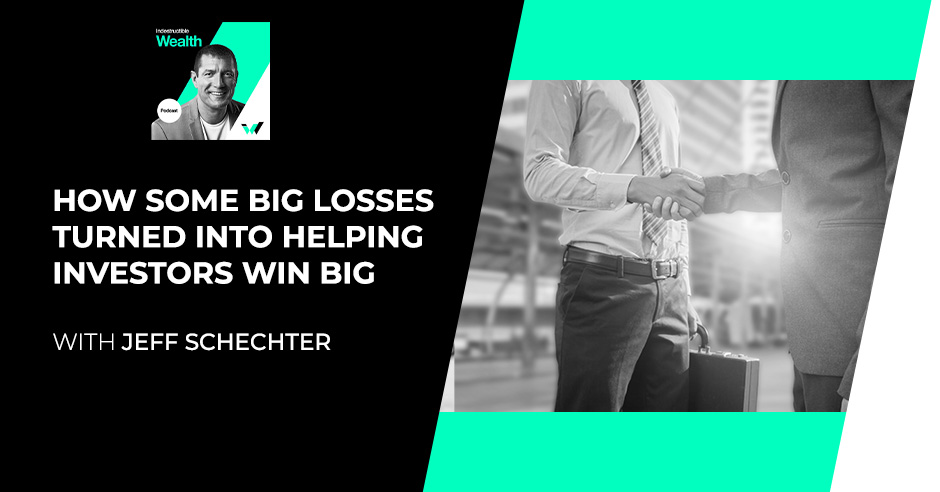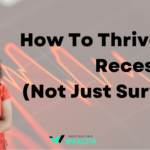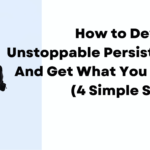
Our special guest, my business partner, talks about the importance of turning losses into wins and how we do it. Tune in and let Jeff Schechter help you understand that there’s a much bigger and more important part of a well-formulated real estate plan.
—
Listen to the podcast here
How Some Big Losses Turned Into Helping Investors Win Big with Jeff Schechter
The facts of wealth building are clear. More millionaires have been created in real estate than in any other industry. To neglect to add real estate to your portfolio could prove detrimental to your long-term plan. What should you buy and where should you buy it? In this interview with my business partner, Jeff Schechter AKA Shecky, he helps you understand that there’s a much bigger and more important part of a well-formulated real estate plan. Understanding this is the key to building a strategy that stands out from the crowd.
Early in our conversation, we chat with Shecky about how strong partnerships are critical to building success and business and investing. He shares how his vision for a new business venture manifested, and then he focuses on the three areas that we all need to be considering besides picking out a property. After talking about a more balanced strategy, he helps you understand property classes and markets in the country where he thinks the sweet spot is for generating cashflow that also has the potential for appreciation. Join us to hear more about the incredible benefits of taking a leap into real estate investing.
—
I’m excited. I’ve got my business partner, Mr. Jeff Schechter AKA Shecky, here with me. We’ve been real estate partners, as I’ve mentioned before, with our company High Return Real Estate for over five years. It’s been quite a journey. Shecky, welcome to the show. Thanks for being on. I appreciate you sharing your wisdom and journey with us.
Thanks. I’m happy to be here.
Before we dive into the good, the bad, and the ugly as far as real estate goes, let’s talk a little bit about your background. What did you do before we started the company?
I am probably the quintessential definition of the scrappy guy. Pretty much been self-employed my whole life. Some of my earlier experiences with real estate were house hacking back in the days, and also had a flipping business for a while back before the big crash in ‘08. I always seemed to have enjoyed working for myself. Also, probably around ‘09, after that big real estate crash, I was living in Texas, living in San Antonio, and I moved up to Austin because I got curious about marketing on the internet and studied a lot of that, and worked in that environment, in the digital marketing space for a long time. I appreciated the leverage that you can get from the internet, and now using a lot of that expertise in our real estate business. That’s a short version.
The way that Shecky and I met is that he was my digital marketing coach in my nutrition business. I happened to be online one day, and I saw one of those little short, cool videos explaining how to become better at social media marketing and Facebook ads. I watched that, and then I had a call with Shecky. Quite honestly, I was impressed by not only his level of expertise and overall strategic mindset, but more so, I felt this supreme sense of trust, and that’s the most important thing in business. You’ve got to trust the people that you’re working with.
I knew that he was a standup guy. I put the big pitch on Shecky to become my real estate partner, 50/50 equity partner. Anyways, Shecky, talk to us a little bit about that. Before I put that big ask in front of you to completely switch everything that you’re doing in life and join me in this new company, you had some visions in place. I want to talk about how important that is for our readers too.
There’s a spiritual component there. During the period that I was working in the digital marketing space, I was experiencing some frustration at that time with the people that I was working with. Not that they were bad guys, we were all friends, but when you work in small business environments, the scrappy part is probably good, but sometimes you can be on the butt end of the scrappy piece. I was finding that it wasn’t playing out as well as I thought it was going to.
After a pretty heavy recovery from a pretty big surgery, I was sitting at home one day and I was doing a lot of working from home at the time. I wrote a few little things on my whiteboard with my left hand, with my bad lefty chicken scratching. I said, “What are the criteria that I’m looking for?” I don’t want to work alone. I want to have a business partner. I wanted to be involved in a high-ticket item where indeed, we weren’t selling $20 eBooks and making $0.08 after marketing fees where we could make some real money. I wanted to be the best in my space.
There were a couple of other criteria that were important to me, and I wanted to be able to leverage my digital marketing skills. I didn’t even write the words real estate up there, but I threw it up there and it sat up there in this little “please don’t erase” box on the top corner of my whiteboard in my home office. I wouldn’t exactly call it a goal, but I would liken it to a message to the universe. I’m going to put it up there. Let it happen.

Turning Losses Into Wins: Send out a message to the universe. Put it out there and let it happen.
It was maybe only 6 or 7 weeks later, Jack, that you and I had that meaningful conversation when you reached out to me. I remember it was this ridiculous three-hour-long conversation and being all sweaty when I was finished pacing around my apartment, but the energy was fantastic in that call. As a courtesy, I had typed up a lot of the notes that had come out of that and sent you the email, and then the next day, you’re writing me back going, “Let’s do it.” I’m calling you up going, “Let’s do what?” and that’s when you revealed to me, “This makes sense for us to form a partnership.”
While I was caught off guard a little bit, I remember hanging up from that call with you and glancing up at the little spot on my whiteboard. I’m looking at that thing going, “Check, check, check, check, check.” There’s something to this manifestation or putting things out to the universe, and the key there is to not be attached to exactly how it’s going to show up. At the time, I was living in Austin. I had a great little apartment looking out over the lake, great life. There was nothing in me waking up in the morning going, “I want to move to Indianapolis.”
That wasn’t part of the plan or anything like that, but I am a pretty spiritual guy and I believe, at the time, that if all these check marks get hit and it shows up this way, then that’s a strong sign from the universe. It wasn’t too much longer later, maybe 1 day or 2, that it was like, “I’m happy to entertain this conversation,” and I flew up to India, and you met me down here. The rest, as we say, is history.
That’s so powerful to think about what you can put onto a board, visualize, and pray about. You’re right. Many people get caught up too much in the, “How is this going to happen?“ instead of putting it out there, being open to all possibilities, and not being so constricted by, “I don’t know how this is going to happen, so I don’t believe that it can happen.” In this entrepreneurial group, I’ve got to ask this question to you. I’ve never asked this question to you before. This hit me. It’s brilliant.
In this entrepreneurial group pre-COVID, we got to meet together. It was fantastic. One person said, “I heard we were talking about partnerships in terms of business entity formations.” This one guy said, “This popular guru says the only partnerships are like sinking ships. It’s just a matter of time before they’re going down.” I spoke up and I’m like, “I don’t subscribe to that because I have a great partnership with my real estate partner. We’ve been going for several years and it’s an amazing partnership.”
I said, “I also don’t believe that because I have an amazing partnership with my wife. We’ve been working together mostly harmoniously. We’ve had our challenges and things we’ve had to work through, but we’ve always worked through them together. That’s the same for you and me. It’s not like we always agree on everything, but we’re always able to figure it out.”
They said, “How are you able to have a good partnership and business like that?” I said, “The most important thing is that we have shared values. We believe in doing business a certain way and we have a certain set of code of morals and ethics.” That was my answer. I’d like to hear what your thoughts are is how our partnership has been able to endure some of the most challenging times possible for a new startup company.
I 100% agree that we are both guys that live by a code. We’re always going to do what’s right. Anytime you say that in a recording or in a video, people think to themselves, “They’re tooting their own horn, whatever.” I would say, “There have been times when we’ve made a lot of mistakes.” Let’s be clear, many mistakes, but we’ve always corrected them. We’ve always gotten right with whomever we’ve wronged.
While it can be extremely costly as we found out in terms of dollars, resources, and what it takes to make things right, again, maybe this is turning into a more spiritual conversation than what we both intended, but it puts energy out there to the universe that says, “We’re always going to do what’s right, and then we never have to worry about the old expression about karma being a bitch.” That’s number one.
Number two, it is interesting that you liken our relationship and mention your wife in the same sentence. To an extent, there is no question that what you and I have is like a marriage in some ways. There are many marriages that are sinking ships. When you look at that, you go, “Why are they sinking ships?” There’s no question that in any partnership, whether it’s a romantic partnership, business partnership, or whatever, there are going to be some freaking rocky times. That’s the way life is. Life is bittersweet. Life is not sweet all the time and bitter all the time. It’s a combination of the two. Again, it speaks to how you are showing up.
Life is not sweet all the time and bitter all the time. It's a combination of the two and speaks to how you are showing up. Share on XBoth you and I are open people. If we’re pissed, we’re going to say we’re pissed. We’re not necessarily going to try to overly judge each other. It’s like, “If you’re feeling pissed, okay. I’m going to let you be pissed.” It’s legit. We’re both pretty strong communicators in terms of listening to each other, and coming to some mutual resolution.
There are many business partnerships that are sinking ships that probably could start with shared ethics, but they also don’t have that commitment to good communication and to always doing what’s best for the us. Any good marriage has a me, a you, but there’s also an us. In our case, the us is that business right there. We know that whatever is good for that is going to be good for both of us. Let’s figure it out.
Let’s talk to our readers and start educating them about real estate for cashflow, tax strategies, and all of that. In terms of purchasing properties to get a cashflow yield, also take a stab at some appreciation, and all of that, what is some guidance and wisdom and things that you can tell our readers that is going to help them? Their goal is to create indestructible wealth. They need to have some real estate exposure in their portfolio without any doubt. Where most millionaires in the world have been made is their real estate. Why not have some exposure and have some of this? Let’s talk about single-family rentals, what we’ve provided, and what we’ve learned.
There’s a lot in there. let’s start early and go to some of the stuff we thought we knew and some of the stuff we didn’t know at the time that we got started. We got started in this model called turnkey investing. There is a provider that provides a property that is turnkey, ready to go. The property’s been purchased, the property’s been rehabbed, there’s a tenant put in, and it’s professionally managed.
It’s supposedly a cashflowing machine. While there are now quite a few different turnkey providers, there is a lot of variety in terms of the quality and the kinds of properties that you could potentially purchase from said turnkey provider. We got started more as sales and marketing guys peddling somebody else’s properties.
Long story short, that turned out to be disastrous because we didn’t realize that these people were not living on the same ethical plane that we are, without name-calling and all that stuff. There was a lot of stuff that was hidden from us that we didn’t know what we didn’t know. Not only did it affect us negatively in terms of our own investments because we bought a lot of properties from them, but it also affected negatively that initial round of investors that also bought properties that we marketed to them and recommended that they use this company.
The first lesson I would say that’s coming out of there, as some of your favorite words, Jack, is trust but verify. That’s what’s way beyond even looking at any numbers. What are the things that you can do to verify? Was the property inspected recently by a third party so that you’re not necessarily trusting the party that’s selling you the property? Anybody can read an inspection report. That’s pretty easy. You can verify what the city tax rules look like. They’re telling you what the tax cost is, but you can get on pretty much any municipal site now and verify what the property taxes are for a property.
You can also verify what your insurance costs might be. You can also look at previous rent rolls. If the property has been tenanted for a while, you can look at rental comps to see if you’re in the right vicinity for market rent. You can look at sales comps because you also spoke a little bit about appreciation. If somebody else is doing all the hard work for you, like a turnkey company like ours, they’re going out, risking on the buy, risking on the rehab, tenanting the property, and all that.
It would be foolish for you to expect that you’re going to buy that property significantly under market value. To that I would say “So what?” If your other numbers work and you’re walking into a property that is in good condition, is cashflowing, and you know your cost of maintenance over time because of the quality of the rehab and what the inspection report showed that your CapEx, your future maintenance expenses aren’t going to be significant.
There’s always going to be a little bit of variance between slightly under, slightly over whatever market value is okay. If you want to play the game of forced equity and being able to get a deal per se, which is tough in this market because inventories are pretty tight and prices are pretty high all over the United States, not just in the Midwest. That could be a whole other episode talking about why that happened and all that. Even with that, it’s a matter of knowing your numbers. That was a big lesson that we learned. If you could let me continue and I’ll talk, then I would say the next rung of understanding goes beyond the property. This is where even seasoned investors fall off the mark.
When you’re saying going beyond the property itself, are you talking about the area in which it’s in and the tenant?
Those are all factors that fall into that previous conversation. If a property has got potential to appreciate all that, so that’s all numbers about the property. The next layer is then, “What’s going on with the individual?” When you look at every single guru that’s out there and they’re pedaling all this education, all this stuff, they’re essentially teaching you how to buy properties or how to do something within the real estate world.
Where most of them fail and where most investors fail is they are not being selfish. They’re looking at all that the property itself. Everything about that property becomes super important. I don’t want to minimize that, but what’s going on with the whole rest of your life? What wealth are you trying to build? This is why you have this other company and this coaching program now called Indestructible Wealth. This is the big hole that’s out there.

Turning Losses Into Wins: Where most investors fail is they look at a property, and it becomes super important. But what’s going on with the whole rest of your life? What kind of wealth are you trying to build?
If I thought that buying properties was the answer, then I would still be doing that as far as how to help people create wealth. I do enjoy, love, and get a passion for helping other people improve their financial life. It’s only one part. It’s a small part at that in terms of what’s the overarching goal.
To frame this in terms of me, you, and the stuff that we’ve been through is over the years, we did a podcast for a while, we had a lot of different experts on, and then we had other working partners. There are a number of things that need to be considered beyond purchasing properties. I agree that there’s no question that a lot of wealth can be built within real estate as a major component of a systemized wealth plan. I’m not arguing that at all.
What I am saying is that there are other things to consider. Taxation is a huge one. That falls into whether you’re investing in and out of a retirement account. There are other pieces within the real estate investing world where you’re maybe not buying houses, but you’re buying notes to have more stable mailbox money and not worrying about whether there are tenants in and out of that property. You have to look at what’s going on with you.
Over the years, we amassed this incredible Rolodex of experts, people that we could reach out to, tax experts, qualified plan experts, insurance experts, and everything that’s attached to real estate investing and other kinds of related investing but it’s a more holistic approach. The point I was making earlier is that if buying a home is part of a holistic approach, then what’s happening is most investors that come to real estate are only looking at this. They’re not saying, “I need to have this holistic approach to everything because I’m trying to build wealth.” One guy is building wealth. The other guy is buying a property.
The best analogy that I could give you, and I’m a natural health guy, so I’ll use this analogy. An allopathic, typical Western medicine doctor, what does he or she do? What are they trained to do? They are trained to treat a symptom. That’s all they do. They know you got a headache, take a pill. You’ve got a backache, take a pill. You’ve got a kidney problem, take this medicine. It’s cause and effect.
What they don’t recognize that most people that are more into holistic health is say the pain is a signal. It’s not a symptom. It’s a signal of a greater problem. How can we make the whole healthy? If the whole is healthy, the pains are going to go away. If you treat it with a drug or a chemical, all you’re doing is masking something. We have seen over the years a lot of investors that come to us, and great people and super nice, and there’s no question we’re happy to sell them a property as long as what we have in inventory at the time matches some of the criteria that they’re looking for.
It became interesting to me and ultimately obvious to us that their only criteria was the symptom. “I have to buy a property. It’s like, “That’s great, but what are you doing holistically for the rest of your health?” As a result, to not maybe to let the cat out of the bag, we’ve come to a point where we in our company, and you and Jack with what you’re doing is we want to treat everybody with the holistic approach.
What life are you trying to build? How is your business structure set up? Are they LLCs? Are they S corps? What’s your taxation situation? Why are you paying this tax when you could be restructuring it that way? What most people that are buying properties don’t recognize is that there are many other beautiful aspects to owning a property that may help them in other parts of their life. Depreciation, cost segregation, to name a couple. If you’re not doing all that stuff correctly and holistically, you are not going to be able to take advantage of it.
For us, when we first started years ago, and a lot of the investors that we were initially serving is that we were so focused on cash-on-cash returns. How much am I buying this property for and what’s the net yield I’m going to get out of it? If I buy the property for $50,000 and it produces $10,000 in net income after all expenses, which years ago was possible, that’s not possible in this market. You make a 20%, cash-on-cash return. That’s what everybody was pretty much exclusively dialed in for.
Now that you and I have had these years of experience and wisdom, now we know and we can see through and past that and know that that’s a small piece of the whole holistic approach to investing. Oftentimes, the best properties for a 5- or 10-year wealth-building strategy are not those that produce the highest cash on the cash return.
Because of the way the numbers work out, they may lend themselves, pun intended, to a better lending structure. That’s another component of the holistic approach. How healthy is your debt? How are you structuring your debt with everything, including your primary residence if you had one credit card, cars, and all that stuff? It is an important component.
Even though what you’re saying is true about cash-on-cash returns, there are also more creative lending products out there now than there was a few years ago. As a result of that, that can skew those numbers. You cannot judge a book by its cover. The property looks good, but how do you open up the book and get through all the chapters and go, “What can I do with it in terms of lending? What could I do with it in terms of my tax structure? What could I do with it in terms of my business structures? How can I depreciate this versus buying it as a house?”
You cannot judge a book by its cover. A property may look good, but how do you open up the book, get through all the chapters, and go, “What could I do with it in terms of lending, my tax structure, my business structures?” Share on XThere are so many things to consider. Once you start aligning with the experts that we have aligned with, it’s a completely different ballgame. It’s almost embarrassing to say what we know now and the information that we can share with investors, it’s fantastic, but it’s embarrassing compared to the kinds of stuff that we were sharing with investors even a few years ago.
Everybody does the best that they can with the tools that they have at that time. That’s one thing you fundamentally have to believe about humans, even the ones that are not doing things on the up and up or with what you’d agree would be the right way to go. We were doing the best that we could at that time. Everybody reading this, you’re going to get better and you’re going to learn. Years from now, you’re going to be a different investor. You’re going to be a different human.
In fact, you’re going to grow and your perspective is going to be so much different. You’re going to look back and be like, “I can’t believe that we did that, we said that, or we trained on that.” Let’s talk about the transition and the product that that high return real estate is now affiliated with in terms of being able to help with the holistic approach. What does it look like? What are you speaking of?
We have another working partner in this venture. He’s a great guy that we’ve gotten close to. Interestingly, he has equity in all of these companies that serve us. It’s like we have a shared vision of being able to provide all of these services under one house. Advantage number one is the investor is not necessarily having to drive this boat in unchartered waters. Let me reach out to a tax expert. Let me talk to my CPA. Let me talk to the 401(k) qualified plans.
You recall, Jack, from the days that you and I were doing our podcast and we joked about it. We would have all these great guests on that would talk about these different things and different strategies. Essentially each one became a commercial for that guest. Whereas there was nothing wrong with it, it was still a symptomatic splintered approach.
What we do now as a program called Cashflow+. Cashflow+ is a program that we bring an investor in and we say, “We’re going to do things. It’s simple. It’s 4 or 5 calls and, first of all, we are going to have a discovery call with you for free to let you understand exactly what this is all about and see if this is meaningful for you. The cost to get in is low. There’s a small membership fee to be associated with it. We’ve kept the priced entry extremely low. What we do is we’ll hold your hand, not necessarily doing your investing for you, but in making the right introductions to you to the right professionals that can help you.
On that first discovery call, you’re discovering what we can do. The next call is called a GO call, which stands for Get Organized. In that Get Organized call, we are going to help you identify the opportunities that exist for you based on your individual personal situation. Maybe you have W-2 income, maybe you don’t. Maybe you have a gargantuan in 401(k), or maybe you don’t. Maybe you own 7 or 8 other investment properties that the debt is structured a certain way, maybe you don’t. We have identified three common areas across all of these investors that tend to falter. Number one is taxation. There are a bunch of different tax experts out there.
The single largest expense of your lifetime by far will be in taxes. In fact, I would argue that you’re going to pay well over 50% of your total income that you earn over your lifetime in taxes because there are so many, federal, state, FICA, and unemployment. You got property taxes, sales taxes, and then the hidden tax of the government printing money at billions and billions of dollars.
It’s obscene and that could be four more episodes.
That’s a different show.
One thing you didn’t mention is all these little insidious taxes. They don’t call them taxes, but why does it cost $80 for me to renew my driver’s license every year?
We had to spend a few grand when we bought our new car for my wife. In Indianapolis, you have the stadium tax there and the Lucas Oil Stadium tax which is 2%.
It’s insidious.
It’s crazy.
We know that that exists. We can do everything that we can. There are tax laws that are made to be intricate on purpose. Here in the United States, there is a tax code. I look at it as not only an obligation but now a sport to say, “What can we do in terms of knowledge and expertise to reduce taxes as much as possible legally?” Those guys and gals are tax strategists. By the way, I want to make a distinction, not a CPA, because they are not tax strategists. They are great tax filers, but they are not tax strategists.

Turning Losses Into Wins: We can look at the tax code not as an obligation but as a sport and think about what we can do in terms of knowledge and expertise to reduce taxes as much as legally possible.
I was talking to one of our investors about Cashflow+ weeks ago, and he said to me, “I have an accountant. Why would I need Cashflow+?
For that very reason. They’re great filers and they’re not tax strategists. There are some good CPAs that know a few tricks, but you’re talking about somebody that spends their whole life and whose whole focus is on knowing every letter of the tax code and understanding when you take that tax code and you plug it into this particular individual’s situation, and you look at all their assets, liabilities, LLCs, debt structure, and all that, how can we then take that and go, “We can take some of this stuff over here and restructure it in such a way that you’re in a much lower tax bracket or you’re getting this or that right off.
My tax strategy team for 2020 taxes saved me over 6 figures. My accountant would’ve never done that. I have a great accountant. I’m not hashing my accountant by any stretch. He’s great. I refer people to him all the time. He seems awesome but it’s not his job to be a tax strategist for me. He doesn’t have the bandwidth and the ability to do that and scour the tax code. They don’t have that.
I don’t know what you paid for that, but I would contend. Even if that tax strategist charged you an obscene amount for their services, let’s say $75,000 and they saved you 6 figures, you’re still way on the winning side of that. I don’t think they necessarily charged you that much.
No, not anymore.
What I’m saying is those people always earn their keep, whatever it is that it costs. You always come out on the winning side of that. Tax is number one. That’s the place where there seems to be the most bleeding, even from the seasoned investors. There’s a lot of complexity to it when you start talking about all the things that are going on personally, how much money is in the right retirement account and how much isn’t, and what are you doing with your LLC set up all that. That’s number one.
Number two is what we call OPM, Other People’s Money, AKA debt. We live in a debt-ridden society, and you and I both recognize that to speak on a higher level, there’s good debt and there’s bad debt. If you’re talking about consumer debt and racking up credit cards, typically that’s not good debt. There is debt that is there to help you make money. I am always amazed, as an example, by investors that get all puffy, and they’re like, “my primary residence is worth $600,000, and I only owe $150,000 on it.” I’m sitting there thinking to myself, “There’s $450,000 in equity that you’re not doing anything with that could be making you a gargantuan sum of returns.
That’s what’s called a lazy asset.
It speaks to that second thing which is debt. In other words, an example of how debt is oftentimes structured incorrectly. the second thing that we attack is debt.
I love debt.
it can be great.
People are scared of it. It’s like debt is a four-letter word because of some of the gurus that have so entrenched upon us that all debt is so bad. It is. There are some bad forms of debt like credit cards and consumer debt. Any consumer debt is generally speaking going to be bad. However, there is great debt, particularly if you leverage real estate debt properly. It’s made me a lot of money.
You got gurus out there and guys like Dave Ramsey that are cowering, getting debt paid down, and all that stuff. I don’t necessarily think that that’s a bad strategy. You said something earlier that I thought was interesting about growth and all that stuff. I’m not picking on anybody here. Maybe I am but when you go 5 to 10 years down the road, there is plenty of people that are happy to hang out on the couch and watch Netflix. They say that they want to get rich and build wealth but they’re not willing to learn some of the stuff, go through the processes, or do what it takes to put themselves into that right position.
A lot of that comes from having a growth mindset and a good work ethic and being honest with yourself about who you are and where you’re going. There’s a lot of the population that is not of that mindset. if you’re more in an “I’m in a survival mode or scarcity mindset,” then a guy Dave Ramsey is appealing. To make a distinction, if you’re reading and you are of a growth mindset and feel that, “Years from now, I want to have a completely different life. I’m not afraid of change. I want to look back and go like, “We’ve accomplished so much. I’ve learned so much.”
Jack and I are speaking specifically to you because the other thing that we’ve learned in the course of this growth that we’ve been through is that we don’t want to work with the people whom Dave Ramsey is attracting as an example. We’re not of the same mindset. Again, I’m not making any judgments. I’m saying that if you’re reading this, it is important for you to do some self-analysis and go, Where do I fall?”
To be honest with you, there isn’t any middle ground. You’re either saying, “I’m willing to grow and change and get uncomfortable, or I’m not.” If you’re not, it’s okay. Nobody’s judging you. Recognize that, be happy with where you’re at and that’s cool. Anyway, sorry for that long rant, but it does segue into the third thing that I’m talking about, and that’s why we called it Cashflow+. It is cashflow.
There is no middle ground. You're either willing to grow, change, and get uncomfortable, or you’re not. Share on XOne of the things that I hate and one of the biggest misnomers of what goes out there in terms of guru land and the investor world is this whole notion of socking everything away and saving everything for a rainy day. Give up all the stuff now so you can live a king later. Whereas in theory, there’s nothing inherently wrong with that.
When you start talking to the right experts and get introduced to the right people, the other thing that you start seeing and you start realizing is that there may be cashflow right now on a monthly basis that can be improved. Why not? Again, it starts speaking to mindset, abundance, and growth. They’re having money now and having money, a great nest egg for the future isn’t necessarily mutually exclusive. We’ve been taught that, or that’s the paradigm.
That’s the prevailing paradigm that was taught to us that you bank everything. You have this huge lump sum at some point in the future, age 65, 70, or whenever that happens, that then you can live off and live the great life. There are big problems with that. Number one is that you are putting off your happiness, your enjoyment of your money, often into the future of which you may either not be around to enjoy it potentially or you might not have the right health. There are a lot of things that can go wrong in human existence in their long continuum. A strategy that you’re talking about is you can have your cake and then eat it too and eat it later as well.
That’s one of the things that, as we developed this program, we started opening up our Rolodex, and had these conversations with investors that we’re going through and are still going through Cashflow+. The underlying question is, “How can I have both?” It’s a fantastic question. I want to put a big disclaimer here. Everybody that reads this, they’re all different people. Some people have greater resources than others, some are better at savings, some have more assets put away, and everybody’s different.
The point being is that we still want to ask that question. Going back to what I said earlier, there are still three things that we’re going to look at, taxes, debt, and cashflow. If you think about it, the first two speak to this one. When you get your taxes straight and your debt straight, not only can you affect the future, but you can also affect the now. That’s what this is all about.
That’s good. I did want to hit on property classes because when people go through this particular cashflow program, they are going to have exclusive access to purchase properties, mortgages, and banknotes that have a fixed, solid, predictable, and safe monthly interest. What property class are they going to be served up and why? A class, B class, and C class, what’s that going to look like? What are expectations like?
If you took A, B, C, and D, and I gave you a quick definition. A would be super high-end luxury properties. B is basic suburban, middle rambler, that stuff. C would be more inner city beat up, but sometimes can be in areas of gentrification
Usually, cashflow is at a higher rate.
Cashflow is at a higher rate, but it comes with a little bit more volatility. D is stay away from it. It’s the war zones where everything is boarded up, high crime, and all that stuff. There are a lot of people that would argue with me on that. I’m giving you a general description.
The classes are subjective for sure, but you’re pretty spot on there.
To go back a little bit about our history, we came from a history of working in the C and C-minus areas. When I use the word volatility, we’ve had some pretty difficult struggles in terms of getting the right tenants and all that stuff. Over the years, we have upped our game in terms of the kinds of properties that we go after, the kinds of properties we hold for ourselves, and the way that we manage properties. We typically straddle in the C-plus, where there is opportunity and areas near gentrification all the way up to a full B. That seems to be a real sweet spot where you’re balancing the return with the tenant experience. That’s where we hover, and FYI, that’s what we built out in Indianapolis.

Turning Losses Into Wins: Class C+ all the way up to Class B is where the opportunity is. It’s a real sweet spot where you balance the return with the tenant experience.
The other fantastic thing as a result of having this holistic approach and relationships is that we also have relationships with sister companies in the Midwest that are buying, rehabbing, and managing similar properties to what we are doing in Indianapolis with nearly identical rehab processes and nearly identical management processes. It creates a consistent product across the board.
What are those other markets, Shecky?
Memphis, St. Louis, we may see some stuff in Dayton. We may see some stuff coming up in Birmingham. We are looking, doing stuff, and starting to do some stuff in Nashville. We’re also looking at Chattanooga right now. They’re all in that central part of the country that straddles the Eastern and Central time zone. The beauty of that for the investor is twofold. One is obvious in terms of having more inventory available because inventory is tight. When we got similar crews and all these other cities out looking for similar criteria, we improved volume.
The other thing, as you and I also learned in one of our other little side lessons is, “Do you want to put all your eggs in one metropolitan basket?” I’m hot on Indianapolis. It’s a great market. I live here. I’ve learned about the city, and it’s a fantastic place to invest, but so are all those other places. There are nuances to those local areas. There are some things that they’re stronger than India in some ways, and sometimes they’re weaker, but overall, an investor buying multiple properties, it does make sense for them to diversify across a few different markets. It’s a way to spread the risk.
In closing, how do people get enrolled in Cashflow+? What’s the cost? You’ve already stated the value. Everybody is pretty clear. I imagine that at some point, they’ll be wanting to join. Where do they go?
Our website is HighReturnRealEstate.com, and you can see what we’re doing there. HighReturnRealEstate.com/Cashflow will take you to the page with a descriptor, and it gives you a quick overview. As of this interview, it’s $750 to get involved in the program. This is thousands of dollars’ worth of value when you start realizing you’ve got 4 or 5 calls, and you’re talking to experts and people that can help you restructure your retirement plans correctly and all that stuff. It’s a drop in the bucket.
It’s $35 or $40 a month. We’ve tried to keep it small as far as the membership fee. We, as a company, are so convinced that it makes sense for our investors to do this. Once you go through that initial Cashflow+ Program and you’ve pulled the trigger on the roadmap that we’ve helped you build. You’ve followed all the steps. You’ll get a certificate of completion.
You can take that certificate of completion and give it back to us, and we’ll give you that initial $750 back against the purchase of your first property from us. We’re essentially even paying for your entry fee. That’s how hot we are on it. I would encourage you to go check it out. There’s no charge to book a call with us to learn about it and do a discovery call. If you find out it’s not for you, great. No harm, no foul.
Shecky, thank you so much for joining and for all your wisdom, experience, and expertise. I know that we will have you back certainly several times on future episodes because there’s a lot to unpack here in terms of real estate investing and the whole holistic plan for an investor. This is not the last time our readers will be learning from you. Thank you so much, everybody. That’s a wrap for this episode of the show.





